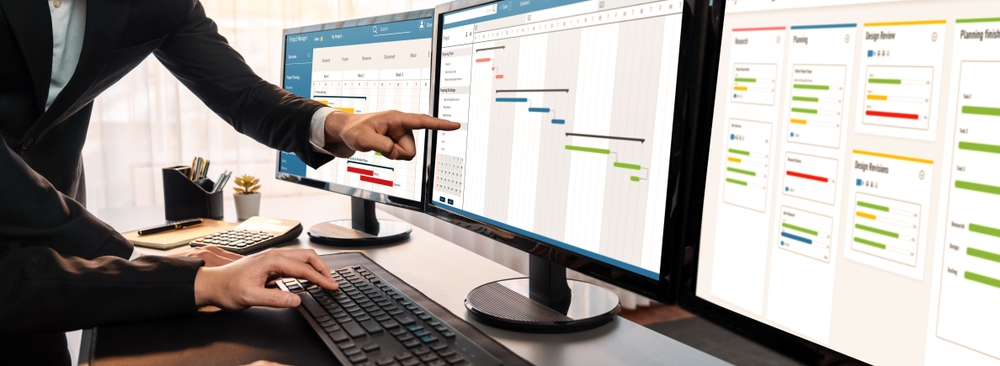In today’s dynamic work environment, one-size-fits-all solutions rarely meet the diverse needs of businesses and individuals. Task management software plays a crucial role in organizing workflows, boosting productivity, and ensuring deadlines are met. Customization allows these tools to adapt to specific requirements, making them indispensable for achieving optimal efficiency. This article delves into why customization matters in task management software, exploring its benefits, use cases, and practical tips for implementation.
1. What Is Customization in Task Management Software?
Customization in task management software refers to the ability to tailor features, workflows, and interfaces to meet specific needs. This includes adjusting settings, modifying task layouts, integrating third-party tools, and creating personalized dashboards.
2. The Need for Customization in Task Management
A. Diverse Workflows
Every team or individual has unique workflows that generic software may not fully support. Customization bridges this gap by adapting to specific processes.
B. Changing Requirements
As businesses grow, their task management needs evolve. Customizable tools ensure scalability and flexibility to meet these changes.
C. Industry-Specific Demands
Industries such as healthcare, IT, and construction have specialized requirements that customizable software can address effectively.
3. Key Benefits of Customization in Task Management Software
A. Improved Efficiency
Custom workflows eliminate unnecessary steps, enabling users to focus on high-priority tasks. Features like tailored templates and automated processes reduce manual effort.
B. Enhanced User Experience
Personalized dashboards and task views make it easier for users to access relevant information, improving productivity and satisfaction.
C. Seamless Collaboration
Customization ensures that teams can align their tools with collaborative needs, such as shared boards, team-specific permissions, and communication channels.
D. Scalability
As teams grow and projects become more complex, customizable software can scale to meet increased demands without requiring a complete overhaul.
4. Customization Features to Look for in Task Management Software
A. Custom Fields
Custom fields allow users to add specific data points, such as deadlines, budgets, or priorities, to tasks and projects.
B. Workflow Automation
Automation features let users set triggers and actions, such as sending reminders or updating task statuses automatically.
C. Role-Based Access
Customizable permissions ensure that team members only access information relevant to their roles, improving security and focus.
D. Reporting and Analytics
Tailored reports provide insights specific to a team’s or individual’s goals, enabling data-driven decision-making.
5. How Customization Drives Business Success
Customization aligns task management tools with business objectives, fostering efficiency and innovation. For example:
- Reduced Downtime: Automating routine tasks minimizes delays.
- Enhanced Client Satisfaction: Custom workflows enable better project tracking and timely delivery.
- Cost Efficiency: Custom tools reduce the need for multiple software solutions, lowering expenses.
6. Challenges of Non-Customizable Software
A. Lack of Flexibility
Rigid tools can hinder productivity by forcing users to adapt to predefined workflows.
B. Reduced Efficiency
Without the ability to streamline tasks, teams spend more time on manual adjustments.
C. Higher Training Costs
Non-customizable software often requires extensive training, as users must adapt to its limitations rather than their needs.
7. Industries That Benefit Most from Customizable Task Management Tools
A. Healthcare
Customized workflows help manage patient schedules, medical records, and compliance tracking.
B. Information Technology
Custom fields and automation improve issue tracking, software development cycles, and project management.
C. Construction
Tailored solutions manage timelines, budgets, and subcontractor collaboration effectively.
D. Marketing
Creative teams benefit from customizable campaign tracking, client-specific workflows, and deadline reminders.
8. Top Task Management Tools with Customization Options
A. Monday.com
Known for its visual interface and flexible workflows, Monday.com caters to diverse industries.
B. ClickUp
ClickUp offers extensive customization options, from task templates to automated workflows.
C. Asana
Asana’s custom fields and integration options make it a favorite among teams of all sizes.
D. Trello
Trello’s Power-Ups and custom boards are ideal for visual task management.
E. Smartsheet
Smartsheet combines task management with spreadsheet-like customization, perfect for data-heavy projects.
9. Best Practices for Implementing Customizable Task Management Software
A. Identify Key Requirements
Understand your team’s workflows, pain points, and goals before selecting a tool.
B. Involve Stakeholders
Include team members in the decision-making process to ensure the tool meets their needs.
C. Start with Templates
Many tools offer templates for common workflows. Use these as a starting point and customize further.
D. Provide Training
Ensure all users are familiar with the software’s customization features to maximize its potential.
E. Regularly Review and Update
Evaluate your workflows periodically and adjust the tool’s customization to align with evolving needs.
10. FAQs About Customization in Task Management Software
Q: Is customization only for large organizations?
A: No, individuals and small teams can benefit significantly from customizable features.
Q: Does customization increase costs?
A: While some advanced features may come with a cost, the long-term productivity gains often outweigh the expense.
Q: Can customization improve collaboration?
A: Yes, tailored permissions, workflows, and communication tools enhance team collaboration.
Customization in task management software transforms a generic tool into a powerful ally tailored to your unique needs. By enabling workflows that match specific requirements, customization boosts productivity, enhances collaboration, and drives success. Whether you’re an individual professional or part of a large organization, investing in a customizable task management tool can be a game-changer for your productivity and efficiency.


Leave a Reply